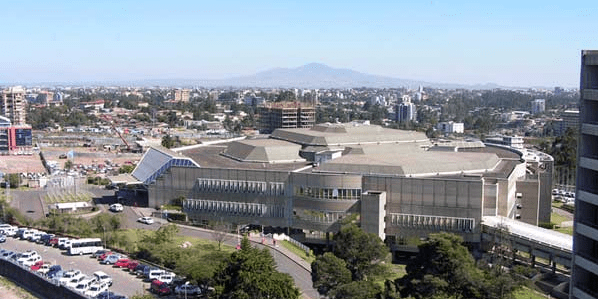In an effort to help member states gain access to a facility that will boost their short-term liquidity and boost longer-term growth, the Economic Commission for Africa (ECA) has partnered with PIMCO, a company asset management, to set up a Liquidity and Sustainability Facility (LSF) that would reduce governments’ borrowing costs by increasing demand for their sovereign bonds.
This will be achieved by allowing existing sovereign bondholders to deposit these instruments as collateral for low-interest loans funded in part by a new issuance of Special Drawing Rights (SDRs). The resources mobilized through such repurchase agreements will then be used to finance investments in emerging market debt.
African policymakers must seek increased lending from multilateral development banks so that they can adequately respond to the COVID-19 pandemic.
Explaining the LSF initiative at a roundtable at the ongoing 53rd session of the Committee of Finance Ministers, Thomas Venon, partner of Eighteen East Capital, says the LSF is designed to help emerging markets advance initiatives sustainable development and, more immediately, facilitate access to liquidity, loans and investments in these countries.
In order to meet their growing development finance needs, African countries have borrowed from private creditors. As a result, their debt landscape has changed over the past decade, with private debt assuming just over 40% of their total outstanding debt. Interest rates on Africa’s private debt, however, are prohibitive, hence the need for a facility such as the FLSA.
“Developed countries have long benefited from the existence of large ‘repo’ markets for their government bonds, which facilitates the creation of stable and additional sources of finance,” said Mr. Venon.
“The LSF will replicate this dynamic for emerging market sovereign bonds, providing investors with competitive funding through repurchase agreements.”
He adds: “The governance of the LSF will be aligned with the public good mission and its adherence to the highest standards of transparency. It is estimated that the FLSA could save African issuers $ 11 billion in interest charges over a five-year period. ”
This facility would pave the way for the global community to help African policymakers jump-start and reinvent sustainable growth, for example by introducing innovative financing tools such as bonds linked to the pursuit of the Sustainable Development Goals.
As a proportion of gross domestic product and export earnings, Africa’s debt of about $ 544 billion is the highest of any developing region. High debt levels hamper public investment in infrastructure and human development and in turn discourage private investment.
According to the ECA, the continent’s production losses from COVID-19 will amount to just under $ 100 billion and translate into a significant reversal of the gains made to fight poverty in recent years and grow close to 30 million people in poverty. While developing countries have pumped billions of dollars into social safety nets, health care support and economic stimulus measures, Africa has not had this fiscal space to respond in the same way.
The continent faces four combined challenges namely, increased debt levels, currently estimated at around 69% of GDP, high budget deficit of 8.7% on average of GDP, high cost of borrowing and write-downs currencies against major currencies.
According to the ECA, African governments are also under pressure to maintain debt service payments and avoid the stigma in financial markets associated with debt relief.
For African countries, health spending rises as incomes decline, putting strong fiscal pressures on public financing, with Africa’s total budget deficit almost doubling from 4.7 percent of GDP in 2019 to 8.7. % in 2020, according to ECA estimates.
The form of economic recovery in Africa will depend on adverse risks, including the potential emergence of financial crises and debt instability, due to weakening economies.
This is why ECA has developed the ad hoc entity, LSF, in cooperation with PIMCO, to help African countries access new liquidity and incentivize private sector investors to re-enter or enter the market. for the first time.
Aia-Eza DaSilva, Secretary of State for Budgets and Public Investments of Angola, says the LSF initiative could provide some liquidity to sovereign debt.
“Liquidity is very important at the moment because we are running out of fiscal space. Debt servicing is so huge, and it absorbs most of our budgets, so we need fiscal space to support our people and to allow us to grow and be able to pay off those debts. ”, Says Ms. Da Silva.
“We need the extra space to breathe in order to continue on the path to growth, and LSF can provide that.”
The 53rd session of the ECA Conference of African Ministers of Finance, Planning and Economic Development is held under the theme, “Sustainable industrialization and diversification of Africa in the digital age in the context of COVID- 19 ”.



